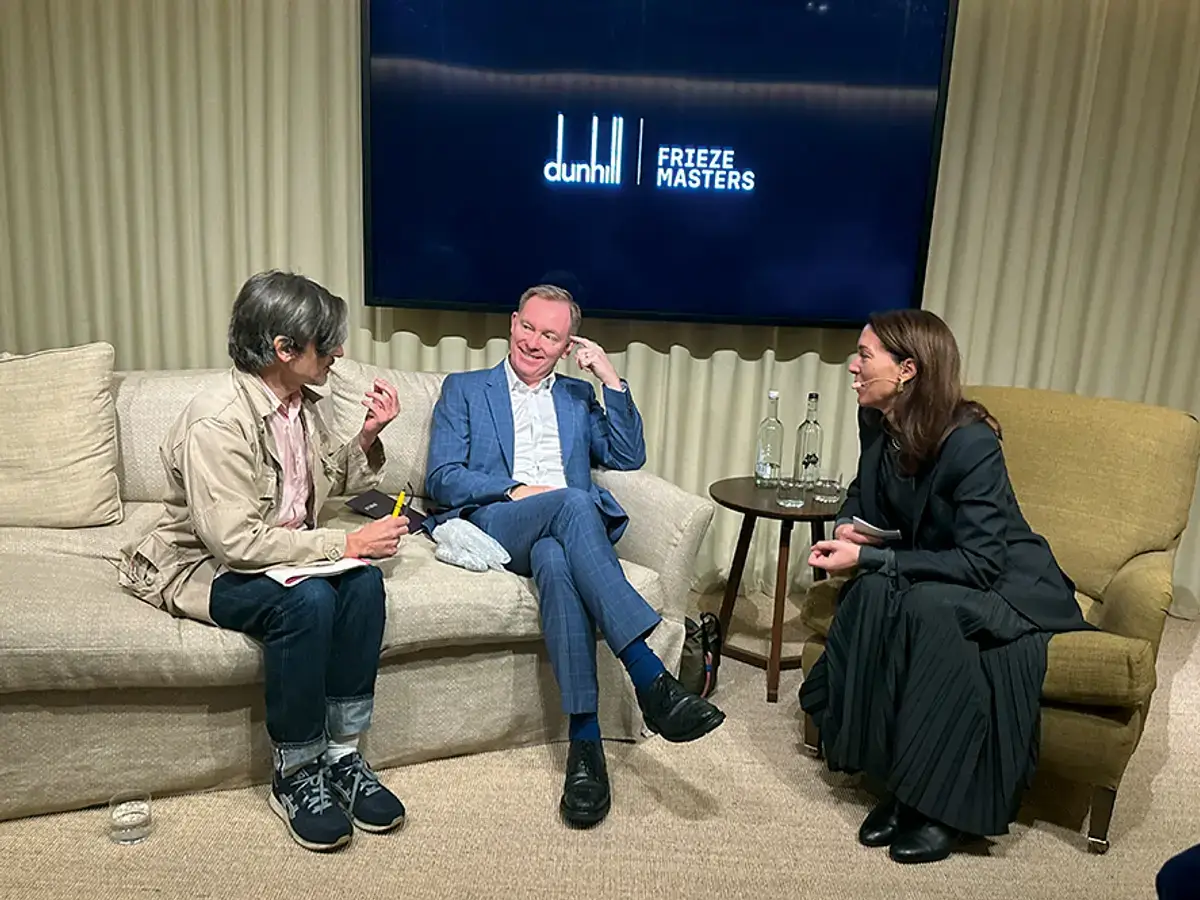The newly appointed UK Arts Minister, Chris Bryant, expressed his passion for making art a viable career path for many, in a discussion held at Frieze Masters. With a focus on funding, education, and avoiding divisive culture wars, Bryant set out his priorities and hopes for the future of the UK’s creative industries. This comes ahead of the much-anticipated Labour government budget on 30 October, which many hope will inject much-needed funding into the arts sector.
A Holistic Approach to Funding the Arts
At the Frieze Masters event, Bryant addressed the pressing issue of arts funding in the UK. He highlighted the current complexity of financing for the creative industries and suggested that the government should explore innovative ways to enhance support for the sector. This includes rethinking how funding bodies like Arts Council England operate, as well as looking at local government spending.
“I think we need to look at the whole package of how money gets into the creative industries,” Bryant said, indicating that the Labour government is keen on ensuring that financial resources reach all corners of the country.
Bryant emphasized the importance of securing a diverse funding mix, something he acknowledged has changed significantly since Labour last held power. In previous years, creative industries relied on a combination of direct government grants, Arts Council funding, local authority contributions, EU support, and philanthropic efforts. With the UK’s departure from the European Union, that mix has shifted, making it more crucial than ever to rethink strategies, especially regarding philanthropy.
One of Bryant’s key takeaways was his acknowledgment of the need for creative thinking in terms of how philanthropy operates in the UK. He suggested that a more dynamic approach to funding could help level the playing field, ensuring that more regions and communities across the UK can benefit from support for the arts.
Navigating Culture Wars and Political Divides
Another significant topic at the event was the so-called “culture wars,” which have increasingly shaped political discourse in the UK. Culture wars refer to disputes over cultural issues, often driven by differing views on topics such as historical monuments, free speech, and diversity in the arts. These issues have been highly politicized, and Bryant’s stance on them was clear: the UK needs to move away from divisiveness.
Referring to the recent Tory leadership race between Kemi Badenoch and Robert Jenrick, Bryant said, “You’ve got two people who lead with their chins and both of their chins are made of very thin crystal… I think people are sick of that divisiveness.” This comment reflects Bryant’s desire to avoid stoking tensions over cultural debates, which can often overshadow broader policy discussions.
In line with this, Bryant reaffirmed his commitment to the arm’s length principle, which ensures that national museums and cultural organizations operate independently of government control. This principle is vital in maintaining artistic freedom and preventing undue political influence over the arts.
The Crisis in Arts Education
One of the most pressing concerns raised during the discussion was the state of arts education in UK schools. Over recent years, there has been a notable decline in the number of students taking up art and drama at the secondary level. According to Bryant, this is a crisis that must be addressed if the UK is to maintain its status as a global leader in the creative industries.
“Every child needs a creative education. There has been a dramatic fall in the number of kids studying art and drama. We need to reverse that,” Bryant said.
This drop in participation in the arts is attributed to various factors, including increased pressure on schools to prioritize STEM subjects (Science, Technology, Engineering, and Mathematics), reduced budgets, and the undervaluation of the arts as a career path. Bryant’s commitment to addressing these issues suggests that the Labour government could place a stronger emphasis on arts education in future policies.
During the discussion, Jeremy Deller, a renowned artist and panellist, asked Bryant whether a reversal of these trends would come with significant costs. While Bryant sidestepped the direct question about costs, his overall message was one of passion for the potential of the arts to transform lives and provide meaningful career opportunities.
The Path Forward: Making Art a Viable Career
Chris Bryant’s commitment to the arts is deeply tied to his belief that creative industries offer not only cultural value but also significant economic potential. In his comments, Bryant reiterated his passion for enabling people to build sustainable careers in the arts. For too long, creative careers have been seen as precarious or underfunded, with many aspiring artists struggling to make ends meet. Bryant’s vision aims to change that by fostering a more supportive environment where individuals can thrive in artistic professions.
While the full details of Labour’s plans for the creative industries are yet to be unveiled, Bryant’s statements indicate a future where funding mechanisms will be scrutinized and enhanced, where education in the arts is given the attention it deserves, and where the divisive politics of culture wars are avoided. This optimistic vision offers hope to many in the UK’s vibrant arts community, who are eager for greater support and recognition.
Chris Bryant’s appearance at Frieze Masters underscored his commitment to transforming the arts landscape in the UK. With a focus on innovative funding solutions, a desire to avoid divisive culture wars, and a recognition of the importance of arts education, Bryant’s message was clear: the arts matter, and they must be supported. As the Labour government prepares to announce its budget, all eyes will be on whether these promises translate into meaningful action. Regardless, Bryant’s vision offers a much-needed boost of optimism for the future of the UK’s creative industries.

























